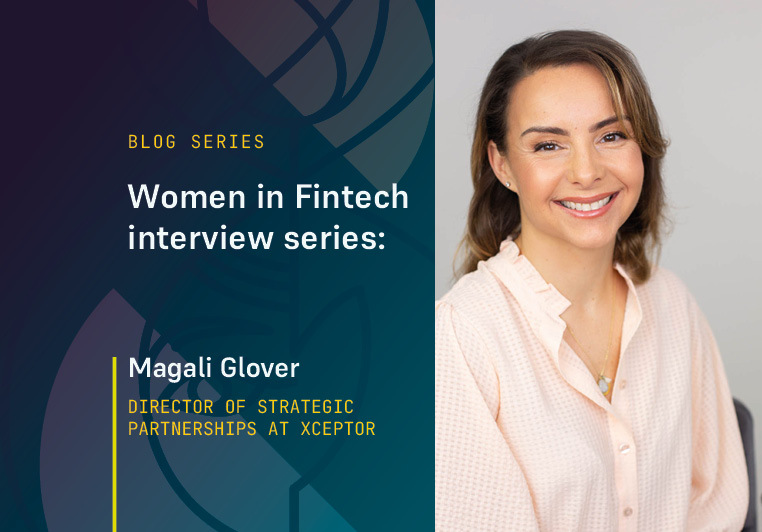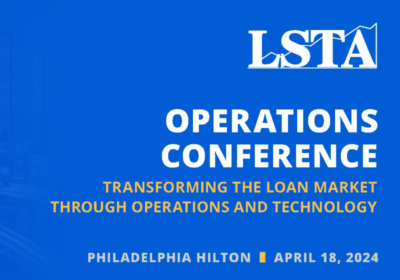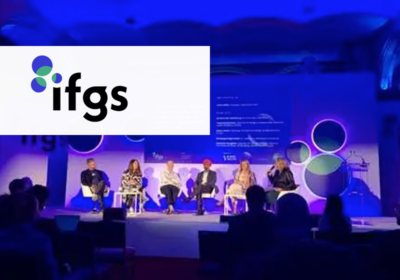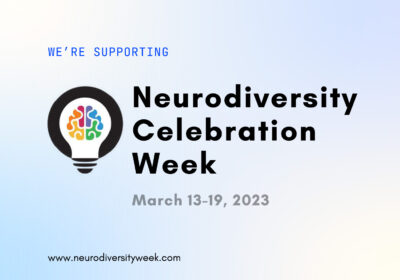Women in Fintech interview series: Instalment three with Magali Glover Director of Strategic Partnerships at Xceptor
Last month we launched our Women in Fintech interview blog series inviting women, and those that champion them, to share their experiences and thoughts on gender diversity and inclusion more generally in the industry.
In this, our third blog in the series, we talk to Magali Glover, Strategic Partnerships Director at Xceptor, a no-code data automation software provider headquartered in London.
Magali, why did you choose a career in fintech?
‘Fintech’ gets used a lot as a buzzword and label but for me what makes a great place to work is being able to learn new things, feel challenged, educate, innovate, create growth and have fun. Fintech companies have these fundamental traits and that’s what excites me and makes me tick. I think it’s important that people work in an industry, company and environment that enables them to be at their best and gives them the opportunities they want.
Xceptor offers me the challenges, opportunities and flexibility I want. Early on in my career, I had a job leading system integration projects at luxury hotels. During that time, I was delivering system training and witnessed first-hand the transformative impact technology has and how it enables businesses to develop better ways of working and grow as a result. It doesn’t matter what background you have the fintech world is an exciting place to be.
What is the industry missing out on by not having more women?
In any industry, women bring a different set of eyes and mindset, varied opinions and varied thinking that help businesses to innovate more effectively. Women and men are different, and we should embrace these differences rather than try to eliminate them. In an environment dominated by men such as fintech, we benefit even more.
Women tend to be more emotional which is often seen as a negative but when nurtured, honed and used appropriately it’s an incredibly powerful asset. Women make great salespeople and managers in general as they actively listen and are open-minded enabling them to finesse negotiations and get more out of people. Women are also their own worst critics and often don’t think they are good enough. They often undervalue the great qualities they bring to the table. A female top-salesperson is a lethal asset to a business.
Does the problem start in the classroom or the boardroom?
Neither and both. It is actually a societal problem, and we have a long way to go. There needs to be greater awareness of all the opportunities within fintech and technology companies outside of engineering roles. We need kids from all backgrounds to know about the innovative and creative non-technical career options that exist and how rewarding those can be.
How can we get more women into leadership positions?
The word ‘leadership’ is normally associated with being a senior executive or high up in an organisation and the responsibilities and status that brings but I think of it more as a mentality and something that should be worked on before you get to the top. When you think about leadership in terms of qualities and mindset you can develop and nurture these in people from entry-level onwards. You can spot the growth potential in people that might otherwise be overlooked. It’s often a lack of confidence that holds people back not their lack of ability or accountability. As leaders ourselves we should embrace, celebrate and promote the unique qualities of women.
If you have a diverse workforce at entry-level and help people realise their potential and promote from within your organisation you will recognise and reward the most talented employees irrespective of gender, race, nationality etc. Again, it comes back to appreciating and valuing the differences in people and the spice that different perspectives and skills bring to a business.
How important are male allies?
Male allies are incredibly important. What I find interesting is that the best male allies don’t realise that’s what they are, it’s instinctive and natural to them. We need to identify those willing and trying to help and encourage them further.
What has been/or will be the impact of COVID19 on gender equality in the industry?
The pandemic has accelerated the adoption of working from home and normalised flexible working which is beneficial for the working mum who has to incorporate dropping off and picking up their kids into their working day. There are also good benefits for the ones who want to build in studying or physical wellbeing, bootcamps or other.
Being fully remote has affected people differently. For some people, it's given them more flexibility and freedom but for others, it’s hindered their ability to network and connect with their colleagues. The longer-term consequences are as yet unknown, and we don’t know what the impact will be 2-4 years from now.
If you’d like to be part of the Women in Fintech conversation and would like to share your experiences and thoughts, please get in touch.

-
World Economic forum 2020
-
Gartner Cool Vendor 2020
-
AI 100 2021
-
Lazard T100
-
FT Intelligent Business 2019
-
FT Intelligent Business 2020
-
CogX Awards 2019
-
CogX Awards 2021
-
Ai BreakThrough Award 2022
-
CogX Awards Best AI Product in Insurance
-
FStech 2023 awards shortlisted
-
ISO27001
-
ISO22301
-
ISO27701
-
ISO27017
-
ISO27018


















